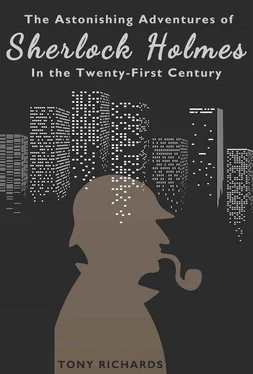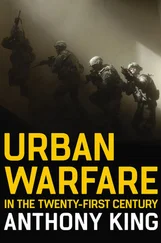“There are around six hundred of them,” Pang informed him, “with six thousand people living on them They are mostly Tanka tribesfolk – a primitive people by our standards.”
There were indeed people on the creaking wooden decks, and children running round, and dogs who barked and snarled at all the passing tourists. Most of the adults – who looked undernourished – wore those conical straw items of headgear that had been called ‘coolie hats’ in his day.
From the end of one of the junks, several skinny youths were diving into the bay and swimming around. And on another, a woman was hauling up a bucket on a rope. It was full of the same grey water, presumably to bathe in.
And then Holmes spotted something even more curious. One of the tourist sampans got extremely close to one of the junks. The passengers on board all raised their cameras.
And the Tanka folk, who were their prospective subjects, immediately removed their hats and covered their faces with them, to avoid being photographed. They looked like criminals ducking the attention of the press, but Holmes realised that that was not the case.
“They are afraid,” he mused, “that the photographs will steal their souls.”
“Exactly so,” his host confirmed. “As I said, they’re primitive.”
He went on to explain that the junks left the harbour at least once a day to catch fish and seafood, mostly for the local restaurants. But it was a mere scratching of a living. These ‘boat people’ were extremely poor.
“Most of them are born on a junk, live on it and even die on it, their feet never once touching dry land. And it has been that way for them for generations.”
“Incredible,” Holmes breathed.
It had to be a curiously isolated kind of life. All told, he would much rather inhabit one of those thin towers.
* * *
Once back ashore, he spent a while conversing with the dockworkers, Mr Pang translating for him. And – as he had expected – they all told him the same story that he had already heard. The merest brief glimpses of a crouching shadow of a man down by the waterside. And then a scream, perhaps a splash. And then another disappearance.
The mood of the fellows he spoke to was grim. They needed this job, could not give it up. Yet they understood that they were all in mortal peril.
“It’s an assassin from the Triads,” he heard several times. “They are murdering us one by one.”
Holmes stared out again at the fence surrounding this enclosure, the height of it, the razor wire at the top, the guards patrolling it, and found himself revisiting the same conclusion he had come to when he’d first arrived: if some assassin was getting into this place, he was coming from the unprotected water.
“A frogman?” Pang hissed.
“Yes,” Holmes whispered. “I believe it might be so.”
They were crouching in the shadow of a massive stack of canisters, the evening thickening around them. Lights had come on all over the dockyard. The night shift had arrived, and the security patrols had been redoubled.
None of which served to alleviate the air of tension hanging round the place. You could almost smell it, like the salt tang on the air. The dockworkers were trying to stick close together, not letting each other out of sight. But more cargo was being unshipped all the time, diverse bundles of it, and it was difficult.
As Holmes watched, a crate fell from its pallet and skittered away. A single man went after it, going dangerously close to the waterside.
“They are not children,” Pang complained. “I cannot command them to walk double-file and hold each others’ hands. They have a job to do.”
And Holmes could see how that was right. And yet it worked to the killer’s advantage.
* * *
An hour after night had fallen, one of the workmen seemed to forget about that fact. He ceased his labours, stretched his limbs, and then produced a pack of cigarettes and walked off towards an empty quay. It was obviously his habit to take a ‘smoke break’ about this hour.
“A dangerous habit,” Holmes muttered, “made even more parlous by the situation that you find yourselves in.”
Indeed, it seemed a reckless thing to do under such circumstances. Perhaps the fellow was of low intelligence, or else his addiction outweighed the potential danger.
Holmes followed the man at a crouch, Pang coming after him. They took great pains to keep out of sight. The fellow clicking at his lighter did not even notice them.
There he stood against the water, reduced to a shadow himself, only his orange hardhat and the glowing tip of his cigarette producing any hue. And at first, the harbour remained almost motionless. The darkened water rippled gently, sloshing against the piers. A gull rose from the surface momentarily, then settled down again.
The man continued puffing, sending plumes of smoke up that were scattered by the breeze.
He took his final draw, then flung the butt out onto the seawater. Holmes could see it land.
And then the surface beside it suddenly bulged.
The workman had not noticed. He was already turning away. The bulge had reached the quayside in another moment.
Then an arm came reaching out.
Holmes heard Pang gasp, and cautioned him to silence with a gesture, not even looking around. His eyes were glued to the unfolding spectacle, since this was happening so very fast.
A second arm followed the first. Hands seized the quayside, and then hauled a body out.
It was merely a silhouette. A shadow. Moisture poured from it. But Holmes’s brow furrowed. From what he could make out of its general shape …
And then the time for thought was over, and the time for action was at hand. The figure was closing in quickly on the hapless workman, who had only just begun to realise that he was not alone out here.
He swivelled round, and let out a hoarse yell which was answered with a flurry of urgent cries from his distant workmates.
They were too far away. This would be over in an instant. Holmes stood to his full height and ran forwards, bellowing with rage.
The lone assassin, seeing that he’d been discovered, halted before he had reached his intended victim. Stood frozen a moment, and then headed back the other way.
Before Holmes could get anywhere near him, the timeless ocean had swallowed him up.
“You were right,” said Pang, a few minutes later. “He was wearing flippers.”
He indicated the wet tracks the assassin had left on the ground.
“Small ones,” the detective pointed out.
“Specialized ones, perhaps? To make running across dry land easier? The man is supremely professional and cunning.”
“Perhaps.”
The commotion which had sprung up was abating by this time. The man who had been set upon had fallen into practically a swoon. A folded-up jacket had been placed beneath his head, and several of his workmates were attending to him. The rest were simply milling around, their fists clenched but open fear upon their faces.
Sherlock Holmes followed the tracks the whole way to the waterside, then peered out across it.
“What should we do now?” Pang asked.
The detective’s manner was particularly thoughtful – even more so than was usually the case.
“He’ll not be back again tonight,” he pronounced. “But I’ll be here again tomorrow night, and then we’ll find his true identity.”
* * *
Pang sent the limousine to his hotel next evening, and was waiting by the gates when Holmes arrived.
And the humble older man was struck with surprise when his guest climbed out. Sherlock Holmes was dressed in his traditional garb. Had donned his deerstalker and cape, just like in the Victorian illustrations everyone had seen of him. And what on earth could be the reasoning behind that?
Читать дальше












